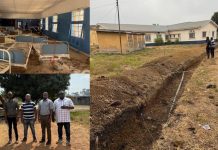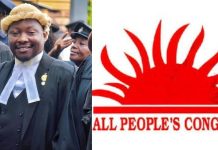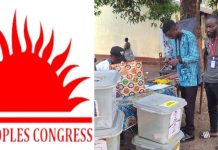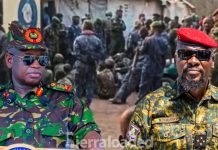Africa-Press – Sierra-Leone. Former president Kgalema Motlanthe said while the unrest that rocked KwaZulu-Natal and Gauteng recently was “mere riots”, the unrest would have had nothing to prey on if South Africa’s leaders decisively dealt with unemployment, poverty and inequality that continue to plague the country.
Motlanthe delivered the Lot Ndlovu lecture during a virtual event on Friday evening organised by the Black Management Forum (BMF). The event was held amid the ongoing Covid-19 pandemic and after the unrest in July and the Cabinet reshuffle by President Cyril Ramaphosa.
The unrest started following the arrest of former president Jacob Zuma for disregarding the Constitutional Court by refusing to appear before the State Capture Inquiry, but morphed into waves of violence and looting, potentially wiping R50 billion off South Africa’s GDP.
Motlanthe took over as president of South Africa in 2008 after former president Thabo Mbeki resigned as president following the rise of Zuma as president of the ANC and later president of the republic.
Businessman Lot Ndlovu was a thought leader, former CEO of Peoples Bank, a division of the Nedbank Group, and president of the BMF between 1995 and 1999. He died in 2013 after battling cancer. Motlanthe said South Africa’s past, that informs much of the country’s present, penetrated all facets of life, including racial injustice.
“Protesters looking for peace and freedom, police shooting at youth and the finger of injustice pointed in every direction was on the eve of the democratic dispensation in 1994. The volcanic activities were in pursuit of a just a noble cause whereas the happenings of last month were but mere riots,” Motlanthe said.
Paraphrasing the words of United States novelist James Baldwin, Motlanthe said rioting was not revolutionary, but reactionary as it invited defeat. “We are told that tensions are beginning to die down and the effects of unrest have left the country facing different challenges such as an economic meltdown that will affect the most vulnerable South Africans. We must remember that tensions remain high.
“These tensions are not beginning to die down. On the contrary, they are only rising. This pandemic has fuelled this ongoing sense of rage that is in the country. It is crucial to pause, step back and look at the bigger picture. This will give us room to ask bigger questions like how South Africa has changed and what we can learn from it,” Motlanthe said.
Motlanthe said socioeconomic conditions, including job losses and further economic decline, entrenched pessimism in the psyche of the nation in a country that was already in a precarious position.
He said the absence of national discourse on South Africa’s humanitarian heritage robbed the country of the opportunity to recognise the values of ethics that should guide its society when it struggles to find leadership.
“The lack of access to capital is a glaring example of our failure as leaders. Let us go back in time for a moment and explore the lessons of our history. How do we understand this perpetual violence and the exclusion of many South Africans?
“We should take our cue from Lot Ndlovu’s life and career in a commitment to service to be personally transformed and contribute to the empowerment of South African people,” he said.
Motlanthe said mounting impatience with unemployment and inequality among ordinary South Africans often obscured the way forward. He urged leaders to examine the unkept promise of freedom through the prism of economic exclusion, social strife and political decay.
BMF president Andile Nomlala said the current leadership has compromised every value that would lead to economic liberation and a just society. “We are in a situation where unfortunately our own liberators have become our oppressors. If we have been freed from the chains of apartheid and colonialism, we would have hoped our forebears would have built a society that we could thrive from,” Nomlala said.
Nomlala said some leaders in the ruling party had no shame and were willing to line their pockets in the middle of a pandemic that destroyed livelihoods and claimed tens of thousands of South African lives. He said such leaders could not claim any moral high ground over the looters in the July unrest.






